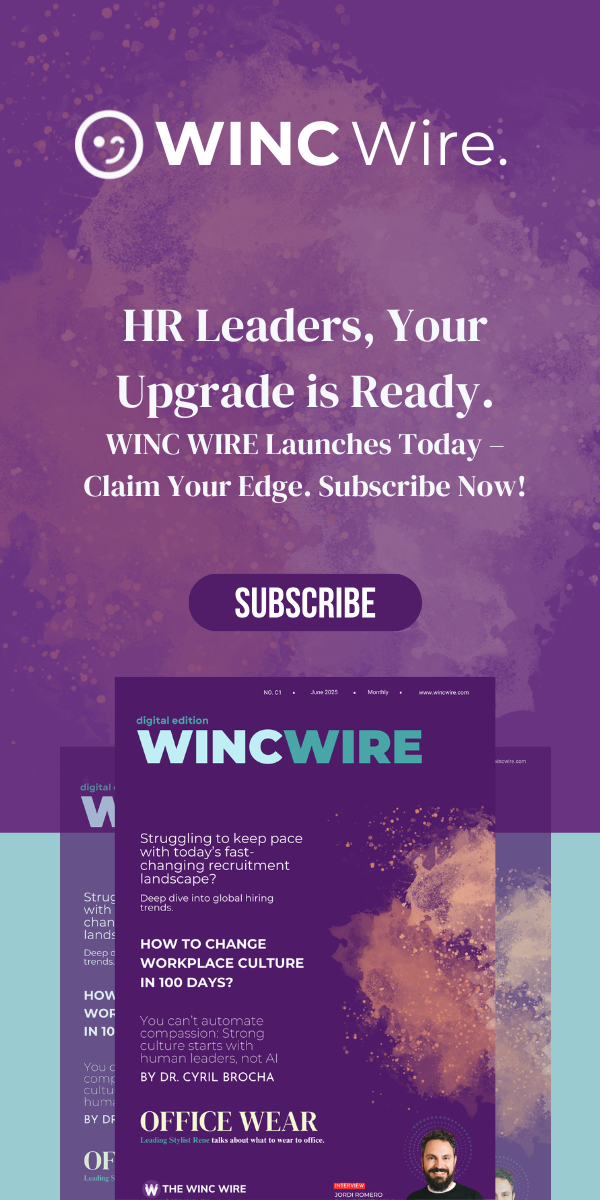As we cross the threshold into the latter half of 2025, HR is not just evolving it’s undergoing a quiet revolution. We’re witnessing a convergence of innovation, culture, and care, as people leaders across industries embrace new paradigms. This isn’t change for change’s sake it’s strategic, human, and deeply overdue.
From hospitality’s pulse on wellbeing to the operational sharpness of automotive manufacturing, these emerging trends are harmonising into a new rhythm for HR. Here’s where the tempo is heading and how future-ready organisations can keep pace.
1. Grant Permission to Explore AI Without Fear
Artificial Intelligence has become the crescendo in every HR conversation from CIPD keynotes to boardroom briefings. But the real shift? We’ve moved past blind adoption and into a space of thoughtful experimentation.
At the CIPD Festival of Work 2025, I watched a standout panel featuring Andy Headworth from HMRC articulate what many feel but rarely voice: teams need permission to play. Think of it as a creative sandbox, not a pressure cooker. This isn’t about replacing people, but about unlocking smarter ways of working.
🔍 Operational Tip:
Set up a “low-risk AI lab” internally no KPIs, no judgements. Encourage your team to tinker, test, and talk about what works. Curiosity, not compliance, is the beginning of AI fluency.
2. End the Culture of ‘Holiday Hustle’
In my early days in hospitality, switching off during time off wasn’t a luxury it was expected. Fast forward to today, and “working from the beach” is disturbingly common.
Presenteeism during holidays is the new red flag in workplace wellness. If we say we prioritise mental health, then we must walk the talk. This requires more than EAP brochures it demands cultural reset.
🔍 Operational Tip:
Embed well-being into the infrastructure: digital “out of office” locks, manager-led energy check-ins, and enforced downtime post-critical sprints. Think of it not as policy, but as protection.
3. Prepare Now for Post-Election Reality
Political cycles create ripple effects in employment legislation especially across markets like the UK and Asia Pacific. Waiting for policy to hit your inbox is like waiting for the rain before you buy an umbrella.
Whether it’s worker protections, hiring rules, or benefits reform, the post-election period will shape compliance and culture in tandem. The best HR leaders act like strategists, not administrators.
🔍 Operational Tip:
Form a rapid-response legal and comms taskforce. Empower them to track regulatory shifts and brief your senior leaders monthly. Pre-empt, don’t just react.
4. Reclaim Internal Comms as a Strategic Asset
When I led a multi-site talent expansion at Allwyn, internal communication was our linchpin. Not just for logistics but for identity. The best employee experiences don’t happen by accident; they’re shaped by clear, values-driven messaging.
HR isn’t the postman we’re the pulse. Our job is to connect teams to meaning, not just memos. From culture rollouts to difficult change moments, how we communicate is how we lead.
🔍 Operational Tip:
Audit your internal channels. Are they inspiring dialogue or just broadcasting noise? Use every touchpoint from onboarding to offboarding to reinforce your organisation’s story.
5. Redesign Rewards Around Real Needs
Compensation without context is no longer compelling. Employees aren’t just asking what they’re paid they’re asking why they should stay. And in 2025, that equation includes time, trust, and tangible growth.
Progressive organisations are expanding beyond pay packets: four-day weeks, equity sharing, remote flexibility, learning stipends. These are not perks they’re signals of respect.
🔍 Operational Tip:
Survey your people quarterly, not annually. Focus on what matters most now, not last year. Then translate that insight into tailored reward strategies. Make reward personal, not paternalistic.
Where We Go From Here
HR has always been a mirror to broader organisational maturity. But in 2025, it’s also the torch guiding companies through complexity with a people-first mindset.
If we embrace these trends not as passing fads, but as invitations to lead differently, we won’t just keep up. We’ll define what’s next.
The future of work isn’t on the horizon it’s already here. The question is: will we choose to meet it, or mould it?





